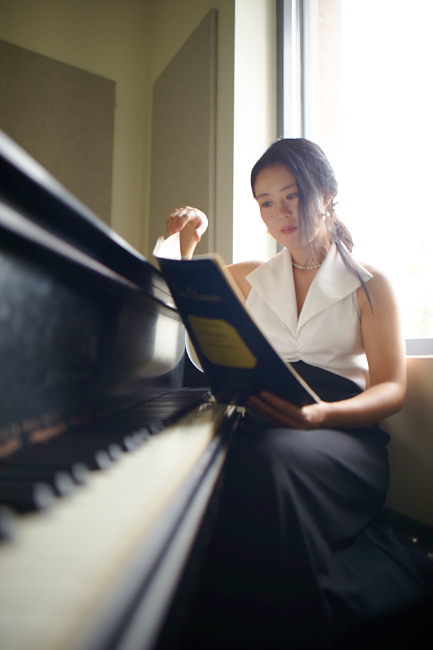This is the English translation of my bi-weekly column “The Way of the Piano” #116 published by Nikkan San.
“How do you get to Carnegie Hall?” “Practice, practice, practice…” The joke is as old as the hall itself, which opened in 1891, some attributing it to Heifetz, others to Arthur Rubinstein.

My Carnegie Hall debut was in 1998 – I sure did practice a lot those days! (Image source is here)
Sacrificing your sleep, fingers and well-being….musicians often flaunt their sacrifices for the sake of practice like a badge of honor. “Until my fingers bleed…” “Taking bites in between passages, instead of actual meals…” “Practicing through the night…” Beethoven was dragged out of bed as a child, made to practice for his drunk father in the middle of nights. My late mentor at Juilliard once confessed to me with a tinge of pride, how he woke up one morning next to his instrument with some Chinese food still in his mouth, having fallen asleep in the middle of late night practice as he ate his after-performance meal.
However, the latest science doesn’t really backup these types of practicing for effective improvement. For example, there is the 2019 NIH study, where the participants practiced typing with 10-second breaks in between 10-second practicing. Their brainwaves were much more active during the breaks compared to the actual practice time, indicating that the skill acquisition needed breaks to process the learned skills.
And in fact, we know these things empirically, without having to rely on study findings by the NIH.
“I got a call in the middle of your practicing. After the call, the passage I’d been working on is suddenly playable…does that happen to you, too?” “Yes! Yes, often!!!” I remember my conversation from my student days from decades ago.
And of course, sleep as a crucial component of learning is now much talked about after the bestselling “Why We Sleep: Unlocking the Power of Sleep and Dreams” (2017) by Matthew Walker. According to the neuroscientist and sleep expert, sleep transfers short-term memories from the day into the long term memory, improves our abilities to learn, to memorize and to make logical decisions, and enhances our creativity. It only contributes to our physical health by boosting our immune system, regulating our metabolism, hormones, leading to longevity.

In all we do, having a day of rest brings more fruits to our endeavors than simply slaving away day after day.
I love how science has proven what had been written thousands of years ago as correct.
Great post! Oh, and quite a beautiful picture of you!!
I am so glad you enjoyed this post, Manuel! And yes indeed, our ancestors were very wise, and our traditions are full of valuable lessons 🙂
HI, Makiko! This is Ione,, mother and wife of three people who share our love and value of good music. Our son has his own recording studio in the Pacific Northwest…and can play, if urged acoustic guitar, and our daughter has two degrees from Juilliard where she finished formal study of violin. YOU were my best teacher, in twenty minutes or so on the cruise ship the Stella Solaris and it was very generous of you to give me THAT much time, since you were there to perform, not to teach. Do you remember? Playing piano and moving one half stop at a time high to low… denotes sadness. YES. Tell me, what denotes happiness?
OH! I will visit You Tube to hear more of your playing. You may look up, also on You Tube, Deborah or Debbie Moran and her pianist duet partner: Gayle…(whoops forgot last name. Gayle, a very NICE person too, also wet to Juilliard and plays in other parts of the country, but lives here.
Yes Ione!! Of course, I remember our lesson on Stella Solaris very well. It was Chopin’s e-minor Prelude, Op. 28-4, and we talked about the descending half-tones throughout the piece!!
And “what denotes happiness” you ask me: Here is my video on that! https://youtu.be/eSWpDLA77bY?si=NGTQFBJO_1M6ZOIN